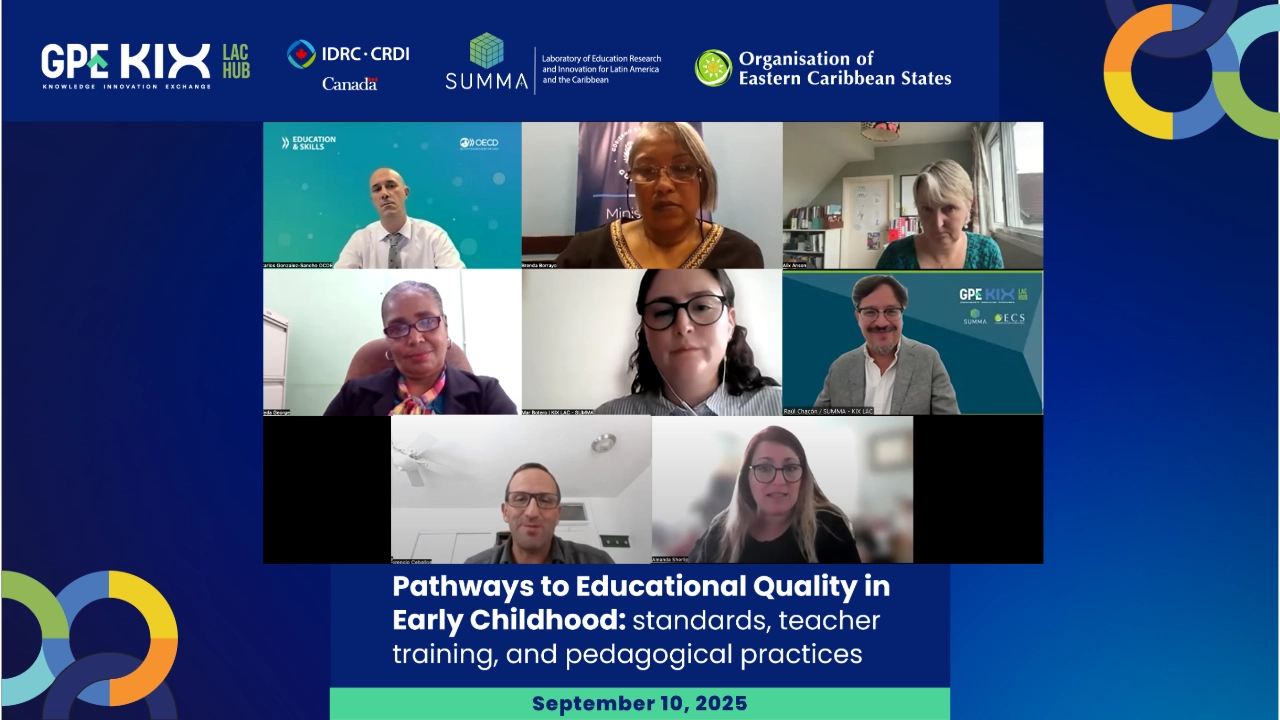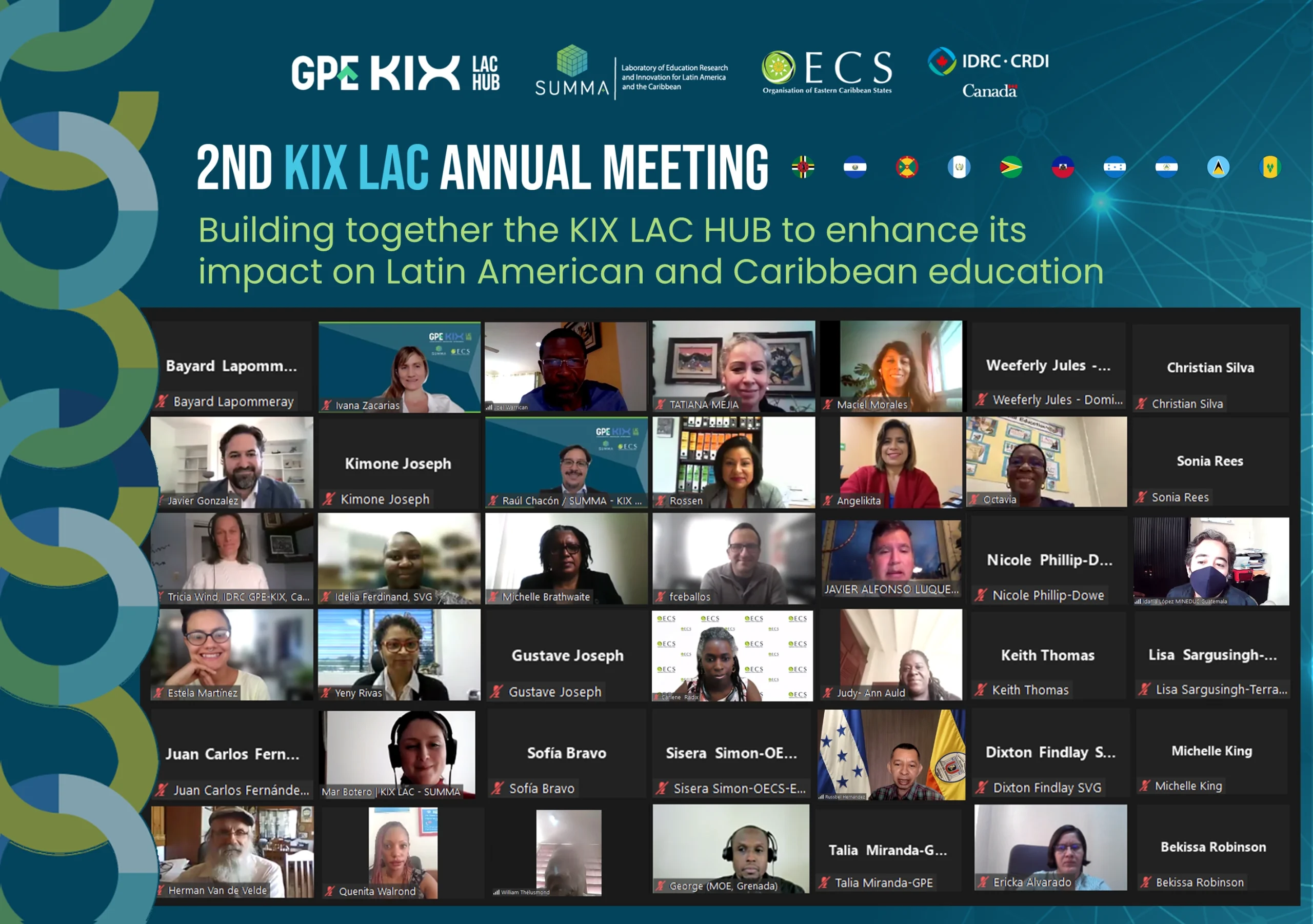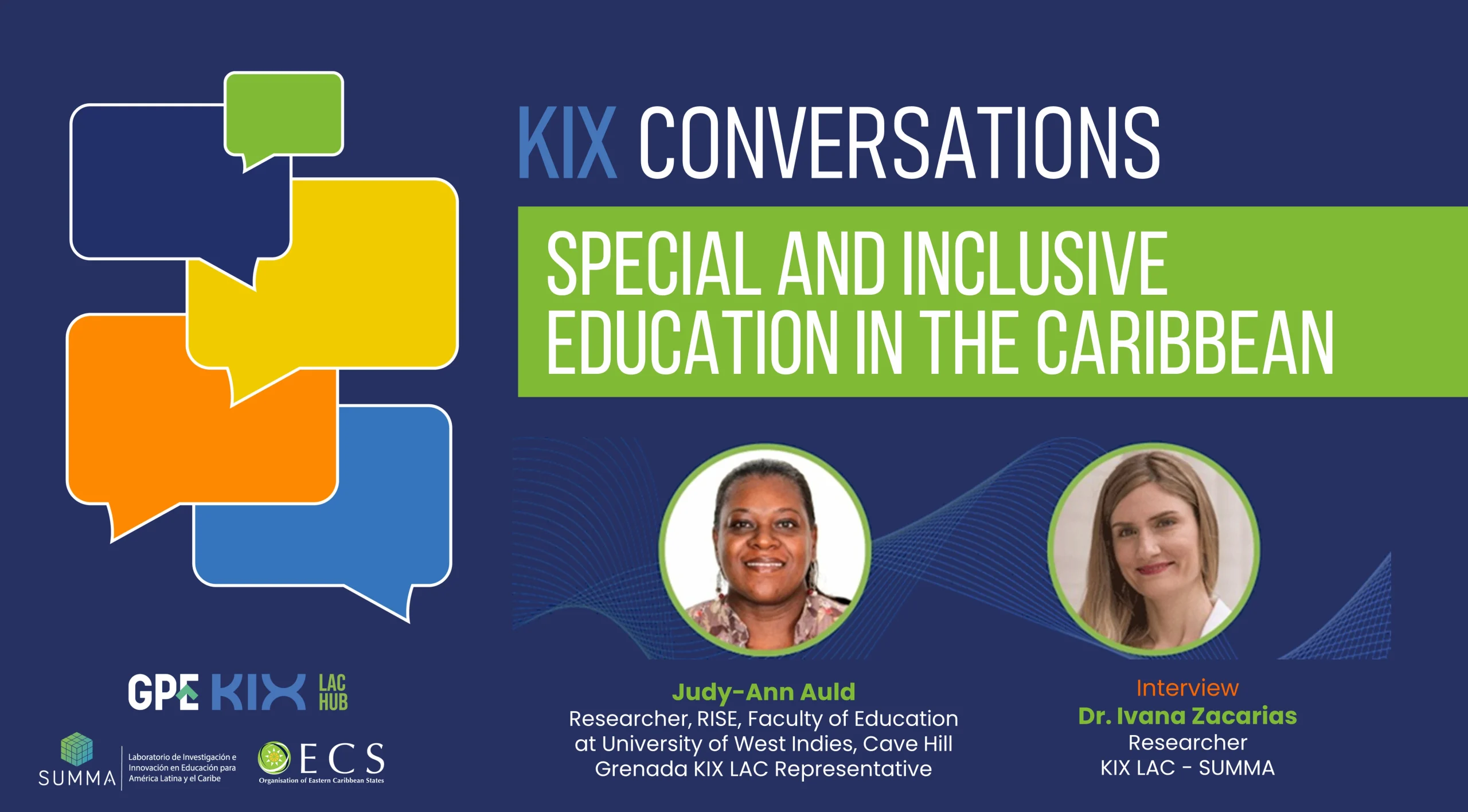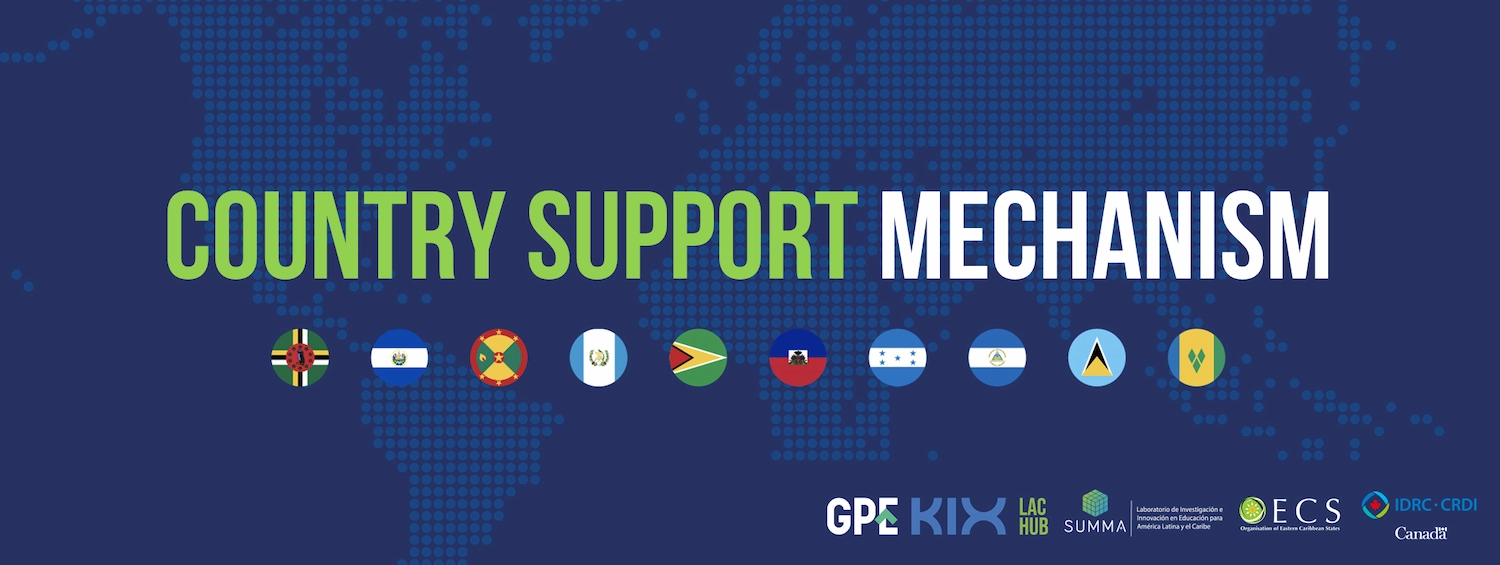KIX LAC promotes the exchange of quality in early childhood education: standards, teacher training, and pedagogical practices
16 de September de 2025

Share
Relive the entire webinar here
The KIX LAC Hub -an initiative that is part of the Knowledge and Innovation Exchange of the Global Partnership for Education (GPE KIX), a joint effort with the International Development Research Centre (IDRC) of Canada, and led in Latin America and the Caribbean by SUMMA and the Organization of Eastern Caribbean States (OECS)– organized on September 10 the webinar “Pathways to Educational Quality in Early Childhood: Standards, Teacher Training, and Pedagogical Practices”, which kicked off the third sub-cycle of the Knowledge Mobilization Cycle on the Use of Evidence for Early Childhood Education and Care.
The meeting brought together specialists from the Organization for Economic Cooperation and Development (OECD), the Ministry of Education of Dominica, the Ministry of Education of Guatemala, the Rassmuss Foundation, and Hands Across the Sea, who shared experiences and reflections on the quality of early childhood education in the region. The webinar addressed the challenges of implementing standards in diverse contexts, the role of curricular frameworks to promote more equitable educational transitions, and opportunities to strengthen teacher training and promote inclusive and sustainable pedagogical practices. In addition, a space for exchange was included in which participants could ask questions to the speakers, generating an enriching dialogue that allowed them to deepen the topics addressed and link them with concrete realities in the region.
Raúl Chacón, Director of KIX LAC, welcomed the participants, emphasizing the importance of improving educational quality from early childhood. He underscored the learning accumulated during the cycle – from financing and institutionalism to foundational and socioemotional learning – and stated that this new sub-cycle focuses on quality standards, curricular frameworks, and inclusive pedagogical practices. He also warned about the persistent gaps in coverage, infrastructure, and teacher training in the region, and remarked that the challenge can only be faced collectively. “We consider the triangle of quality, equity, and inclusion to be inseparable; always from a perspective of educational justice aimed at narrowing gaps”, he stressed.
To begin the presentations, Carlos González-Sancho, Policy Analyst, Early Childhood and Schools Division, OECD Directorate for Education and Skills, shared findings on the role of standards and curricular frameworks in the quality of early education. She pointed out that quality should be understood in a multidimensional way, where structural conditions favor meaningful interactions -the core of quality- with proven impact on early learning. He stressed that standards are key to aligning priorities and professionalizing education, although they require a balance between universality and flexibility, as well as effective monitoring and self-evaluation mechanisms. Finally, he challenged the region to expand coverage without compromising quality and to coordinate these efforts with multisectoral child development strategies.
The webinar continued with a panel of national and civil society experiences from Guatemala, Dominica, and civil society. Brenda Borrayo, Head of the Early Childhood level of the General Directorate of Educational Quality Management of the Ministry of Education of Guatemala, presented a path of progress and learning: after the specific National Base Curriculum for early childhood (2008) and the relaunch of community care (2019), a recent evaluation showed disparate impacts, which prompted course corrections. An intersectoral approach was promoted with the “Mano a Mano” program to improve basic conditions in households, and human resources training was prioritized. At the same time, a virtual monitoring system was implemented, while progress was made in the provision of children’s libraries and the creation of minimum infrastructure spaces to care for children. This process is complemented by the updating of the curriculum for 0-3 years of age, coordinated with pre-primary and primary school, the obligatory use of the mother tongue, priority attention to rural and indigenous areas, and the design of a model of attention with differentiated modalities -direct, community and for specific populations such as children with mothers deprived of their freedom, hospitalized or in a situation of mobility.
Veda George, Head of Early Childhood Education at the Ministry of Education of Dominica, described a sustained reform that went from social and private initiatives to a public policy backed by regulation (2003 statute), multisectoral committees (2005), and the decision to guarantee universal access to early education (2012). From there, the preschool level was incorporated into primary schools -with adequate spaces, toilets, and playgrounds-, new centers were built, and an Early Childhood Unit was created with specific positions for early stimulation (0-4) and early education (3-4). Within this framework, the Roving Caregivers program was institutionalized (a program of home visits that accompanies families with children from 3 months of age, combining early stimulation and guidance to parents for nurturing and learning environments in vulnerable contexts), the public-private partnership was maintained with support and monitoring of private centers, and the HighScope curriculum was adopted along with a certified teacher training program in alliance with the University of the West Indies. In addition, language inclusion was promoted, with support from UNICEF and Hands Across the Sea to improve environments and provide books, and disaster risk management was integrated into the curriculum in response to the country’s high climate vulnerability.
For her part, Alix Anson, creator and advisor to Alfadeca of the Rassmuss Foundation, recounted how an intervention focused on early literacy evolved – since the pandemic – into multisensory resources and classroom routines that link letter form with image and sound, reduce memory load, and support teachers through classroom mentoring (weekly and then biweekly). He described the co-creation and contextualization of materials between Chile and the Caribbean, the new resource Bridge to facilitate the transition from preschool to basic education, and the focus on executive functions (attention, working memory, cognitive flexibility). In evaluation, they combine teacher observation (‘superprof’ skills aligned to standards), individual reading follow-up at school, and family participation with open resources, seeking to balance routine and creativity to accelerate reading comprehension without losing context or diversity.”
To close the presentations, Amanda Sherlip, Executive Consultant and Director Emeritus of Hands Across the Sea, shared the lessons learned from the Early Pages program, conceived in the midst of the pandemic (2020) as a shift from merely providing books to changing early literacy practices. With pilots in Grenada and Nevis, the model was structured on three fronts: literacy-rich preschool environments, active family engagement, and community mobilization. Sherlip highlighted the alignment with HighScope, the training and accompaniment of teachers, and the adaptation to the bilingual context of the Caribbean, along with visible effects on classroom organization, family involvement, and the interest of authorities in scaling up the initiative. The program’s manual, available in open access, seeks to facilitate adoption and to remind that evaluating early childhood requires looking at long-term impacts.
The webinar closed with the reflections of Florencio Ceballos, Program Officer at IDRC Canada and Senior Specialist in the KIX Program, who highlighted that the value of this cycle resided in its continuity and thematic coherence: “This type of learning space makes more sense when there is continuity, progression, and thematic coherence, as we did with early childhood.” He pointed out central challenges such as teacher training and confidence, the participation of families and communities, and the incorporation of civil society and equity within a social justice agenda. Finally, he called for maintaining the focus on the sustainability and scalability of innovations, so that advances in early childhood are consolidated into long-term policies.





















































































































